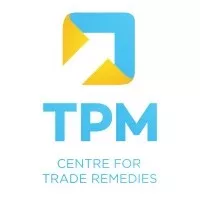- within Antitrust/Competition Law topic(s)
Indian Updates
India and Chile initiate negotiations for a Comprehensive Economic Partnership Agreement
India and Chile have announced the launch of trade negotiations for a Comprehensive Economic Partnership Agreement (CEPA), to enhance bilateral trade relations. The proposed agreement aims to unlock the full potential of the commercial relationship between the two sides, boosting employment, bilateral trade in goods, health and pharmaceuticals, defense and security, infrastructure, mining and mineral resources.
Global Updates
China, Japan and South Korea agree to sign a trilateral free trade agreement
China, South Korea, and Japan have agreed to strengthen their economic ties by negotiating a trilateral free trade agreement. The countries agreed to a meeting to discuss the agreement, as a response to reciprocal tariffs announced by USA. The trilateral agreement aims to enhance regional and global trade by reducing tariffs and addressing non-tariff barriers. The three countries emphasized the need to strengthen the implementation of the Regional Comprehensive Economic Partnership (RCEP) and create a framework for expanding trade through the Korea-China-Japan FTA negotiations.
The Comprehensive Economic Partnership Agreement between UAE and Costa Rica comes into force
The UAE-Costa Rica CEPA has come into effect from 01st April 2025. The agreement was signed in April last year and includes provisions governing digital trade, market access in services and IPR protection and enforcement. In terms of trade in goods, the agreement has eliminated tariffs on 97.4% of UAE exports to Costa Rica, on immediate basis, with gradual reduction for other goods over a period of 10 years. For the UAE, 95.99% of exports from Costa Rica have become duty free, with gradual reduction for other goods over a period of 10 years.
The Comprehensive Economic Partnership Agreement between UAE and Mauritius comes into effect
The UAE-Mauritius CEPA has come into effect from 1st April 2025. The agreement was signed in July last year and includes provisions governing digital trade, market access in services, access to trade remedial measures, IPR protection and enforcement. In terms of trade in goods, the agreement provides for immediate tariff elimination for 99% of UAE exports and tariff elimination for 97% of exports from Mauritius.
Ukraine and the European Free Trade Association sign a revised free trade agreement
Ukraine has signed a revised free trade agreement with the European Free Trade Association states, which include Switzerland, Norway, Iceland, and Liechtenstein. The renewed agreement, originally established in 2010, aims to strengthen economic ties by introducing chapters on e-commerce, support for small and medium-sized enterprises, and trade and sustainable development. It also includes revised provisions on trade facilitation, sanitary and phytosanitary measures, public procurement, technical cooperation, and intellectual property protection. The updated rules on the origin of goods are expected to boost Ukraine's integration into European supply chains, enhancing market access and economic cooperation. In addition, Ukraine has also signed a separate investment treaty with Switzerland, protecting Swiss investments against unlawful direct or indirect expropriations.
The UAE and the Republic of Congo sign a Comprehensive Economic Partnership Agreement
The UAE and the Republic of the Congo have signed a Comprehensive Economic Partnership Agreement to enhance bilateral trade and investment. The agreement aims to eliminate tariffs on 99.5% of UAE export lines and 98% of Congolese export lines over five years. It also seeks to reduce and eliminate non-tariff barriers, improve market access for services exports, and create new investment channels.
Malaysia and the European Free Trade Association (EFTA) finalise the Malaysia-EFTA Economic Partnership Agreement
Malaysia and the European Free Trade Association have successfully concluded negotiations for the Malaysia-EFTA Economic Partnership Agreement (MEEPA). The agreement aims to enhance trade in goods and services, investment and intellectual property rights. Notably for Malaysia, the MEEPA secures permanent preferential treatment for its exports, eliminating the uncertainty of the temporary Generalised System of Preferences (GSP). However, the preferential treatment would terminate once Malaysia becomes ineligible for the GSP. This agreement is expected to boost Malaysia's exports of electrical and electronic products, machinery, equipment and parts, optical and scientific instruments, chemicals and rubber products. For the EFTA, the agreement grants benefits on exports of mainly chemicals and chemical products.
The content of this article is intended to provide a general guide to the subject matter. Specialist advice should be sought about your specific circumstances.


